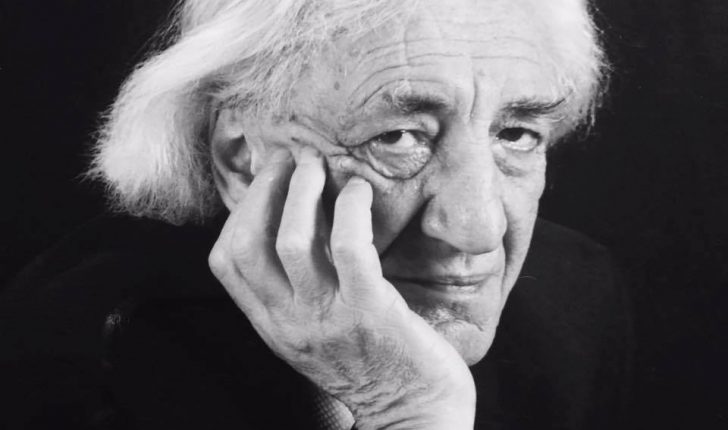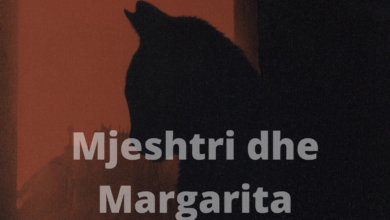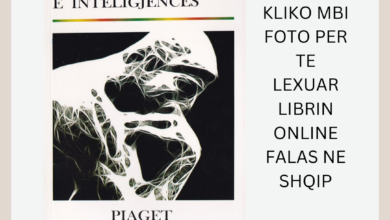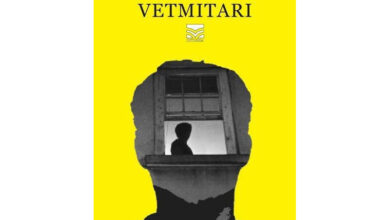The Rise and Fall of Comrade Zylo Dritëro Agolli

Shkëlqimi dhe rënia e shokut Zylo Dritëro Agolli

Dritëro Agolli was born in Menkulas of Devoll. After receiving his first lessons in his hometown, he continued the gymnasium of Gjirokastra, a school with a lot of tradition. He completed his higher studies in literature in St. Petersburg. He worked for a long time as a journalist in the daily newspaper “Zeri i Popullit”, and for many years he was the President of the Writers and Artists Association of Albania. For thirty years in a row, Dritëro Agolli was elected MP. His literary creativity is quite rich in different genres and types: poetry, poems, stories, novels, novels, dramas, film scripts, etc. He is the winner of several awards and other honors. Some of his most important works have been translated into the West and the East. Dritëro Agolli entered the Albanian literature from the very beginning (60s) as one of its protagonists, changing the dimension of the future. In Agoll’s work he saw himself as the protagonist, the farmer and the shepherd, the peasant and the student, the highlander and the farmer. Agolli became the poet of the earth and of love for it, the writer of philosophy and human pain. The literary work of Dritëro Agolli created the new tradition of Albanian literature. It makes us feel dignified in front of the big world. A great writer of a “small language”, he is as beloved by compatriot readers as in the metropolises of world culture. Dritëro Agolli and his literary generation (’60s) did not present themselves with any new poetics, although there was a lot of discussion about rhyme and rhythm, about free verse and regular verse, about the “rigor” of poetry. More his creative experience, than theoretical treatises, radically changed the tradition of Albanian poetry. Dritëro Agolli appeared in literature as an author with high demands for poetry. He aimed for a more distinctive poetry, with more individuality. Agolli created the poetry of the “un”, in contrast to the poetry of the “we”, which was written “to unite the masses”. new ones of poetic expression. Simplicity of communication, universal messages and open expression of empathy are the strong pillars on which his poetry rests. In his prose, Agolli brought innovations not only in the narrative structure, but also in the gallery of his characters. They left as bizarre as they were ordinary, as tragic as they were comic, as simple as they were magnificent. The rich folk phraseology and philosophy of life generally make all of Agoll’s literary work the most widely read today.
On the book
Although the writer himself has stated that with “The Devil’s Ark” he will change the image of Albanian literature, for a majority of readers his most important literary contribution in prose is “The Rise and Fall of Comrade Zylo” (1973). Chronicle of the glorious career of an “on-line” official, the novel is at the same time a reflection of the miserable position of his subordinate, Demka, a trained penman, who has little by little parted with talent. In recent years, especially after its publication in France, attention has returned to this novel.
There has been a lot of debate about it. Parallels have been drawn and analogies made with similar works that did not find a publishing platform in former communist Eastern countries. On this occasion, it is mentioned, not without some surprise, the degree of freedom of creativity of the most talented authors in Albania. For a closer look at the truth about this issue, perhaps it should be noted the fact that this novel was originally presented as the literary property of the country’s only humorous magazine – “Hosteni” – as well as the other well-known fact that laughter enables everything .
Big upheavals start with humor. When a historical period arrives the time of humor, it means that it has knocked at the moment of ebb. “The good soldier Schweik destroyed the glory of the empire,” says Hashek. Not a little has been written about bureaucrats and servile, but the blame has generally been placed on one side: either the arrogant superior, or the humble subordinate. Whereas in D. Agolli’s humorous novel, Zyloja and Demka, abbreviations of the traditional names “Zylyftar” and “Demir”, where it is not understood where “modernization” begins and where “caress and ridicule” end, fully deserve each other.
Both are triggers for situations that make the reader gasp, but also somewhat irritated. A product of each other, they are at the same time complicit in the illness they suffer. For the art of humor the portrayal of two characters in complicity is a familiar choice. Suffice it to recall, for example, the connections between Don Quixote and Sancho Panza in the well-known work of Cervantes, Oliver Hardin and Sten Laurel.
Even Zyloja with Demka are like that, one in two or two in one. They feed each other and can not be separated. Zylo without Demka and Demka without Zylo can not have. Which of them is more to blame? This is not something that is easily solved. The comedy of Zylos’s figure stems from the fundamental contradiction of his character: he gives himself other values than they deserve, thinking that the state hierarchy is also a hierarchy of merits.
Comrade Zylo is one of the hundreds of middle-ranking officials of a multi-instrumental state apparatus. He is not without work merit, he has done something for her good, but these merits in the scales of society have much less weight than in Zylo’s mind. In fact, Zylo Kamberi is a tragedy-comic figure.
His actions make you laugh, as well as make you feel sorry. Zylo is not a rogue, noisy, noisy bureaucrat. His arrogance is silent. His arrogance is low-key. His actions are always driven by good intentions, but lead to stupid mistakes. Zyloja is not aware of the disease that afflicts her. He is not a schematic bureaucrat, who stands out from there.
Rather, the reader closes the book convinced that, if he could become aware of his weakness, Comrade Zylo would probably come to his senses and find the strength to correct himself. He is therefore an unfortunate figure, where the goodness of purpose is combined with ignorance, with the loss of a sense of reality, of measure for truth.
In this sense, Zyloja appears to the reader in a scene as dangerous as it is to weep. Zylo does not believe in fact, but in the image he has in mind, the illusion. The dimension of life in his way of thinking has been replaced by form ideas. Subjectively, Zylo considers himself at the forefront of society, while objectively limiting it. This is where the author’s emotional attitude is shared.
He mocks, satirizes, embarrasses his character, but also hurts him, justifies him in some way, even, in a way, there are times when it seems clear that he takes it in defense, not stripping it of any value. Zyloja lives the situations she goes through with the utmost seriousness, when others can barely contain their laughter. By confusing the force of law, of competence, of rights as a superior, with the force of argument, which is the highest authority, he attributes to himself undeserved attributes, he blindly believes in the miraculous force of command, of word. By imitating the model he has chosen as the hope for the “climbing clerk”, he avoids himself.






